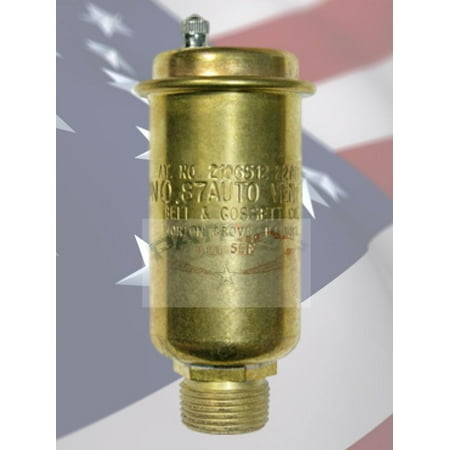Taco automatic air vents have been the industry standard for over 30 years. No matter the application, Taco has the size and style vent to provide unmatched reliable service. Attached to the boiler or used throughout the system, Taco vents automatically purge unwanted air from any hydronic installation, allowing the system to run more efficiently. View and Download Lochinvar 1.3 installation & operation manual online. Lochinvar Boiler User Manual. 1.3 Boiler pdf manual download. Work from the boiler to vent or air termination. Do not exceed the lengths given in this manual for the air or vent piping. Check condensate drain system. Check automatic air vents. Test low.
GOLD CGi Gas-Fired Water Boiler — Boiler Manual
46
Part Number 550-110-710/0107
10b
❏
Check/test . . .
Gas piping
1. Sniff near floor and around boiler area for any in-
dication of a
gas leak
.
0018.
Test gas piping using bubble test,
per Section
5
of this manual, if there is any indication of a leak.
Cold fill and operating pressures

1. While the system is cold, note the
pressure reading
on the boiler pressure/temperature gauge. Verify that

cold fill pressure is correct.
0018.
Watch the pressure
as the boiler and system heat
up to ensure pressure rise is normal. Too high a rise
would indicate a waterlogged or undersized expan-
sion tank.
Air vents and air elimination
1. Inspect automatic air vents (if used). Also inspect
air separators to ensure they are operational.
0018. The cap must be unscrewed one turn to allow air to
Automatic Air Vent Plumbing
escape.
3. See
Automatic Air Vent Price
Figure 34
. If the air vent is leaking, remove cap
A
and briefly push valve
B
and then release to clean
the valve seat.
4. Replace cap
A
by twisting all the way onto valve
B
and then unscrewing one turn.
Figure 34
Automatic air vent, typical
Limit controls and cutoffs
1. Inspect and test the boiler limit control. Verify op-
eration by turning control set point below boiler
temperature. Boiler should cycle off. Return dial to
original setting.
0018. Inspect and test additional limit controls or low
water cutoffs installed on system.
Expansion tank
1. Expansion tanks provide space for water to move in

an out as the heating system water expands due to
temperature increase or contracts as the water cools.
Tanks may be open, closed or diaphragm or bladder
type. See Section
4
of this manual for suggested best
location of expansion tanks and air eliminators.
Open-type
— located above highest radiator or
baseboard unit, usually in the attic or closet. Has a
gauge glass and overflow pipe to a drain.
Closed-type
— welded gas tight and located above
boiler. Tank is partially filled with water, leaving an
air cushion for expansion.
• Make sure this type of tank is fitted with a
tank
fitting
, such as the B & G Tank-Trol or Taco
Taco-Trol. This fitting reduces gravity circula-
tion of air-saturated tank water back to the
system and prevents the air from bubbling up
through the water as it returns from the sys-
tem.
•
Do not use automatic air vents in systems
with closed-type tanks.
The air will escape
from the system instead of returning to the tank.
Eventually, the tank will waterlog and no longer
control pressurization. The boiler relief valve
will weep frequently.
Diaphragm- or bladder-type
— welded gas tight
with a rubber membrane to separate the tank pres-
surizing air and the water. May be located at any
point in the system, but most often found near the
boiler.
• Systems with this type of expansion tank require
at least one
automatic air vent
, preferably lo-
cated on top of an air eliminator, as shown in
examples in manual Section
4
.
0018. If relief valve has tended to weep frequently, the ex-
pansion tank may be waterlogged or undersized.
Closed-type tank
— tank is most likely water-
logged. Install a tank fitting if not already installed.
Then check fill level per fitting manufacturer’s
instructions. If fill level is correct, check tank size
against manufacturer’s instructions. Replace with
a larger tank if necessary.
B&g Automatic Air Vent
Diaphragm- or bladder-type
— first, check tank
size to be sure it is large enough for the system. If
size is too small, add additional tank(s) as neces-
sary to provide sufficient expansion. If tank size is
large enough, remove tank from system and check
charge pressure (usually 10018 psig for residential ap-
plications). If tank won’t hold pressure, membrane
has been damaged. Replace tank.
Service & maintenance – annual start-up
(cont.)